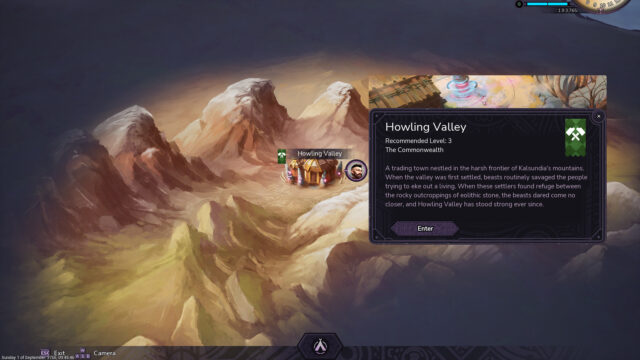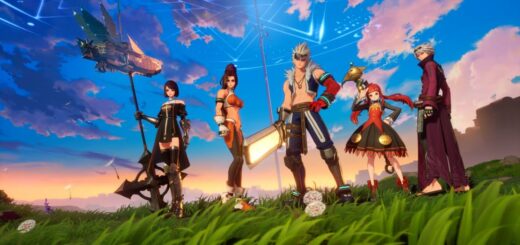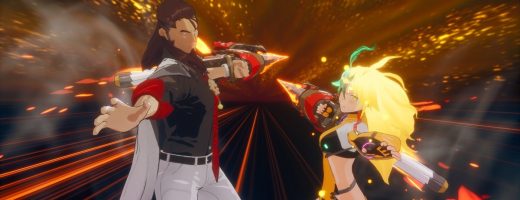Unforetold: Witchstone Interview
Unforetold: Witchstone is a CRPG by Spearhead Games released on Steam Early Access on January 25, 2024. The game aims to give player-agency in a “choices matter” dialogue system reminiscint of the traditional tabletop RPG experience. We interview Malik Boukhira of Spearhead Games, the creative director of Unforetold: Witchstone, to answer some questions on the game’s setting and NPC Influence system.
Johnathan Stringer (RPGamer): Can you give us a quick elevator pitch for Unforetold: Witchstone?
Malik Boukhira: Unforetold: Witchstone is a CRPG inspired by the tabletop experience that focuses on offering unprecedented freedom to the player, a dynamic world, and open-ended story.
JS: What is the significance of the game’s title?
MB: Unforetold emphasizes that your destiny is not set in stone, and that you can achieve many goals, in many different ways.
Witchstone refers to a key element in our setting. They are a mysterious crystal only found on the continent of Kalsundia, where the game unfolds. A group of wizards discovered Witchtones were a fantastic source of energy, and started using them to power various devices, from firearms to trains. The people of Kalsundia used this technological edge to fight and gain independence against the Empires that used to rule the continent.
JS: Being a party-based CRPG, how many characters can you have on the team? Are the other characters recruitable, or all created?
MB: You can have up to three companions on your team. Our approach is that you create and roleplay your character, but your party members are their own people, potentially with values and goals that do not match yours. You are their leader and can give them orders, but they won’t necessarily accept doing anything you ask blindly without some convincing. For example, a good-natured wizard will not happily oblige if you order them to throw a fireball in the middle of the local inn.
You can recruit any character in the world as a companion. Of course, a farmer may not necessarily be very useful when adventuring and fighting monsters.
JS: Is the story and progression linear or more open-world style?
MB: The story is very open and sandbox-y. There are various key story milestones you can reach, but which ones you accomplish, and which goal you work towards and how you go about it, is all up to you. Quests exist in our game, but they are all optional. It is up to you to decide if you want to accomplish your goals the way certain characters would like you to, or find your own way of doing things. This creates a lot of flexibility and open-endedness in how the story unfolds.
JS: In promotional videos, capturing the tabletop RPG experience is a big focus. In what ways and how do you plan to achieve this?
MB: One really appealing thing about tabletop RPGs is the sense of freedom you have in terms of what you feel you can do and say. Another very important element is your sense of agency with the world, in how characters and the world react to you, and how you feel your decisions can shape the story. This is thanks to the fact that the game is human-driven by a game master.
While video game RPGs are all inspired, one way or another, from the tabletop experience, we went back to the root and focused on pushing the above two key elements of the experience. Instead of the classic branching narrative approach used by many games, we developed a new approach based on interconnected narrative systems and NPC AI that allows for a more dynamic and reactive world and characters. This unlocks new possibilities in terms of freedom and story flexibility for the players.
JS: Most are aware of the limitations and challenges in capturing tabletop gaming in video games, but what are some of the advantages a video game adaptation of a tabletop RPG experience has over its source?
MB: The video game format streamlines a lot of the mechanical and bookkeeping aspects of tabletop. The game takes care of calculating bonuses, scores, chances to succeed, etc. It allows you to focus more on building your characters and progressing your adventure. And compared to static figurines in combat, you also get cool animations and special effects.
JS: Can you further explain the “Influence” NPC conversation and interaction feature? How do you account for the NPC responses for all the many different options and make them sound meaningful?
MB: Influence is a unique feature of the game; it allows you to basically craft your own dialogue options to try and influence any character in the game to perform different actions.
You can choose from a variety of different commands such as “attack another character”, “give me something you own”, “meet me somewhere”, “join my party”, and more. There are also diplomatic options when dealing with factions such as “surrender”, “sign a peace treaty”, or “declare war”. You combine that command with your choice of an approach, such as threatening them physically, fast-talking them, arguing logically or even blackmailing them.
The chances of success of your influence attempt depend on several factors like your skills and your character build, but also who your target character is their personality traits, their friends and foes, the faction, etc. For example, asking an honorable law officer to attack a civilian will be hard, no matter what approach you choose. But using intimidation on a cowardly noble to bully them into giving you their precious necklace has a good chance of working. Of course there may be consequences to that… This feature offers great roleplaying opportunities, but also a ton of freedom and creativity on how to solve various challenges in the game.
JS: How challenging is it to balance the game and Influence system to not be easily broken and taken advantage of by the player?
MB: The balance is definitely a challenge, between giving flexibility and freedom to the player, but not making it too easy to bypass some challenges. A key element is to balance Influence against other playstyles. Influence is awesome, but we don’t want it to feel overpowered and overshadow combat and stealth in every situation. Ideally, different approaches work better in some situations, but not every situation.
JS: Past games such as Neverwinter Nights have allowed players access to creation tools to run their own tabletop-like RPG experiences. Are you planning to have any of that support in the game?
MB: We’d love to get to that eventually, but there are currently no plans to support a custom creation tool.
JS: What tabletop games did you take the most inspirations and features from?
MB: Of course, we can’t talk about table-top RPG influence without mentioning Dungeons & Dragons, the most popular and influential RPG. In addition to the creative aspect of roleplaying, we also wanted to give a classic feel to the mechanics of the game, notably with dice rolling.
Outside of that, there are a lot of people in our team who play all kinds of tabletop games, not just roleplaying, but also story rich board games. World of Darkness, Tainted Grail, etc. The influence of such games aren’t always direct, but contribute to feed our vision for the experience we thrive for in Unforetold: Witchstone.
We would like to send thanks to Malik of Spearhead games for taking time to answer our questions and shore more about Unforetold: Witchstone, as well as Derick Thomas from Plan of Attack for setting up this interview. We look forward to covering this intriguing and ambitious game during its Early Access on Steam, and its full release.









Recent Comments